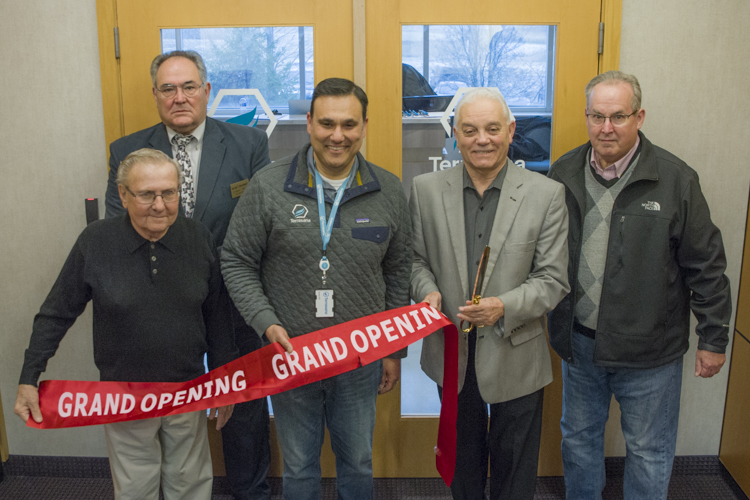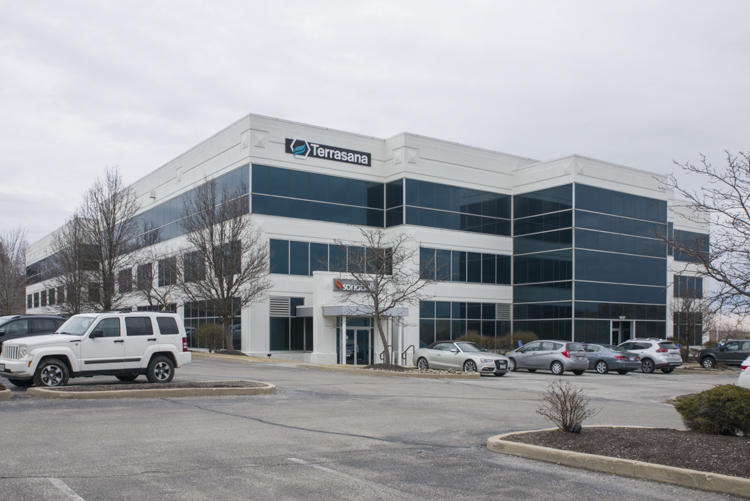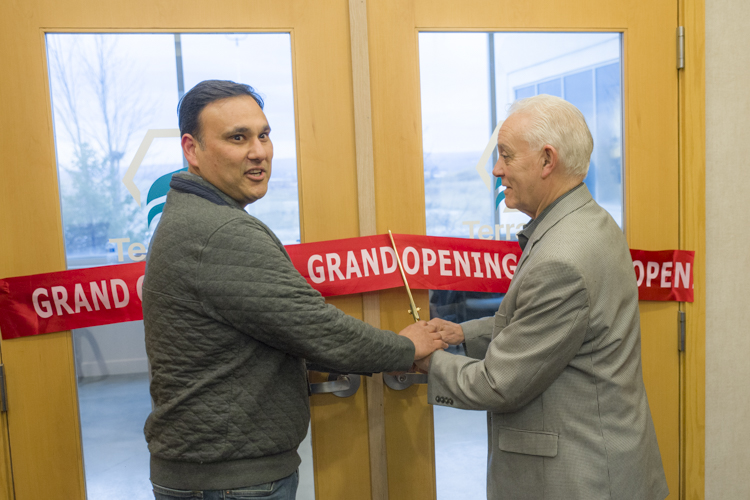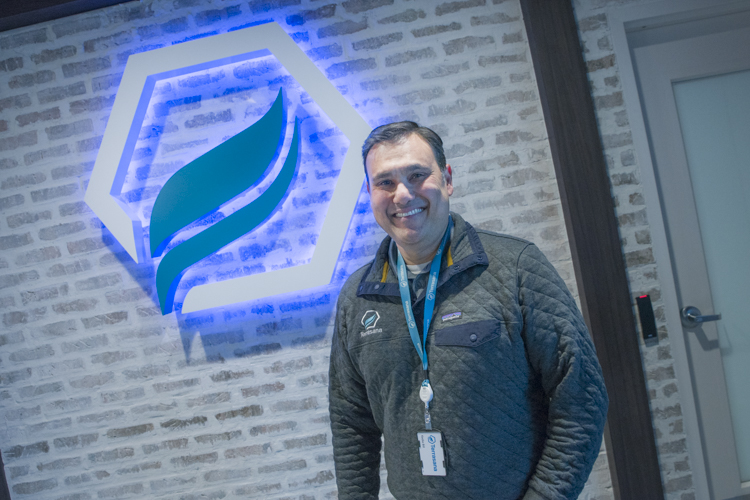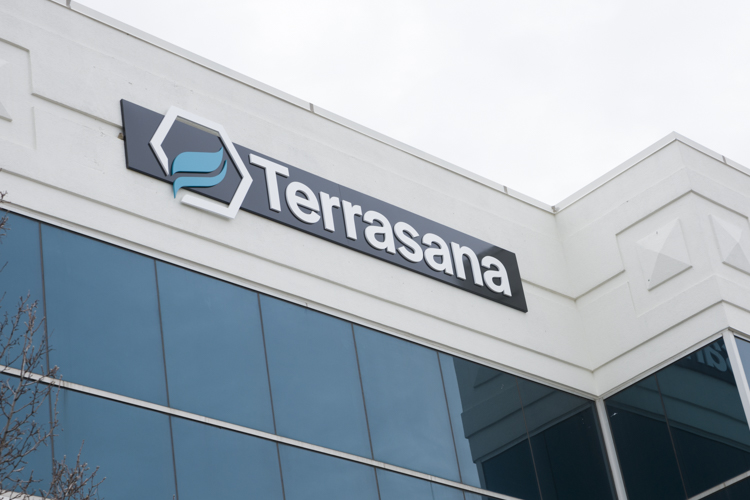Meet the movers and vapers shaping Cleveland's growing cannabis scene
When Terrasana opened its doors on March 28 to become Cuyahoga County's first medical marijuana dispensary, it brought a sigh of relief to cannabis users throughout the Cleveland area. Prior to the opening of its Garfield Heights store, Ohio Marijuana Card holders had to travel to dispensaries in Canton or Wickliffe to get doctor-prescribed cannabis to treat the 21 state-approved medical conditions that qualify, thanks to the state’s slow rollout of medical marijuana.
Even better than its convenient location just off I-480, Terrasana currently offers the cheapest prices in the state inside a clean, high-tech, modern space modeled after the Apple store that immediately kicks any preconceptions of headshops to the curb. Tablets are even available for patients to scroll through cannabis options before selecting from a menu.
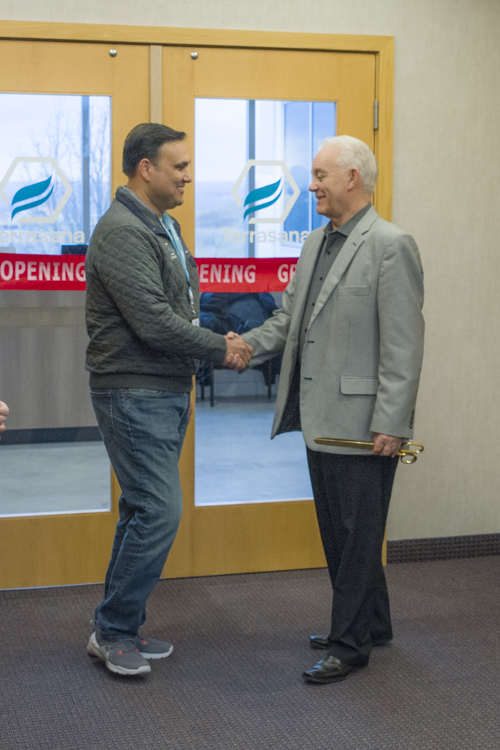 “We want to take away the stigma that's associated with buying cannabis,” says William Kedia, MD, who is Terrasana’s co-founder, Chief Medical Officer, and Head of Research. “How do you do that? You put it in a relaxed, comfortable, warm, friendly, and quite frankly, upscale environment.”
“We want to take away the stigma that's associated with buying cannabis,” says William Kedia, MD, who is Terrasana’s co-founder, Chief Medical Officer, and Head of Research. “How do you do that? You put it in a relaxed, comfortable, warm, friendly, and quite frankly, upscale environment.”
Kedia, who treats thousands of patients at his private medical practice with offices in Hudson and Tallmadge, hopes that the availability of medical marijuana will help alleviate Ohio’s high rates of opioid abuse—which often starts with from opioids prescribed for chronic pain.
“If you only look at it from an opioid use perspective, anything we can do to reduce that dependency and even the very first prescription, it's all for the better,” he says.
A different kind of R/x
Stow resident Randy Shaffer has seen firsthand how medical marijuana can help with pain. After exhausting a variety of medications for his severe gout and arthritis with little relief, he gave cannabis a try.
“I was really quite shocked. I had an attack that was so bad that my wrists and ankles were completely sidelined. I could not move,” Shaffer says. “I tried cannabis and literally within about 15 to 20 minutes, I was doing jumping jacks in my kitchen. I have not had a significant gout episode since finding a regulated balance of medicine in combination with medical marijuana use.”
Soon, Shaffer was even able to exercise and travel again without fear of debilitating pain. A convert to the benefits of medical marijuana, he wanted to do what he could to spread the word. Shaffer took a job as head of marketing for Ohio Marijuana Card, before moving onto another marketing role at Green Health Docs, a company that helps patients get medical marijuana cards in Ohio and several other states.
“I felt that it was absolutely paramount for me to get into the industry and contribute my knowledge, my passion, and my dedication to medical cannabis,” he says.
Learning the trade
Shaffer is far from the only Clevelander making a career out of the medical marijuana industry. At the Cleveland School of Cannabis in Independence, students are primed for a variety of jobs in the field. As one of only two career schools in the country offering state-approved certificate programs in cannabis, CSC offers three separate tracks for students: Cannabis Horticulture, Cannabis Dispensary, and Medical Applications of Cannabis.
 With classes covering topics like cannabis law and politics, cannabis extraction, and patient navigation, graduates are well-suited for jobs such as cultivating plants in growing facilities, doing research, or working in dispensaries. (In fact, several CSC graduates work at Terrasana.) Students graduate having completed 150 hours of coursework.
With classes covering topics like cannabis law and politics, cannabis extraction, and patient navigation, graduates are well-suited for jobs such as cultivating plants in growing facilities, doing research, or working in dispensaries. (In fact, several CSC graduates work at Terrasana.) Students graduate having completed 150 hours of coursework.
That rigorous workload combined with school-provided resume and interviewing prep means students get recruited by employers fast. “We're graduating skilled workers that are able to actually get in there and work immediately,” says Kevin Greene, Vice President of Admissions and Recruiting. “We have over 60 percent job placement, and we're getting calls every single day,” he adds.
So far, the school has graduated 89 people and has 114 currently enrolled, most of whom are from right here in Cleveland. With the mid-April addition of an online certificate program and the recent opening of a Columbus location, those numbers are sure to grow. But it’s not enough, according to Greene.
“It’s not even close,” he says. “There are a lot of jobs. We're trying to meet the need but it’s not enough. The industry is not even at 100 percent—there's going to be 52 dispensaries across the state and we’re only at 11.”
That’s not even counting processing plants, cultivators, or ancillary jobs that don’t require being around the plant itself. “It's a brand new industry,” says Greene. “Just as much as we need dispensary agents and horticulturalists, we also need accountants, HR, marketing.”
Land of opportunity
Not only is the cannabis industry a force of nature when it comes to creating jobs, it’s growing entrepreneurial opportunities, too. Case in point: Columbus-based Indoor Gardens, a hydroponic gardening supply company that partners with Ohio Cannabis Cultivation License holders. The growing company expanded to a new Cleveland location in Slavic Village to much fanfare (even mayor Frank Jackson was in attendance for the grand opening) in January to anticipate the increasing demand as more cannabis growers open.
Other small businesses are also poised to grow as medical marijuana facilities increase throughout the state. Lisa Oswald, CEO and owner of Cleveland’s Kay Chemical is ready for her company’s product Bud’s Resin Remover to take off. The gel-based product was developed after a Kay Chemical hand cleaner proved to be effective at quickly eliminating sticky, hard-to-remove cannabis resin left behind on hands, surfaces, and tools from the act of processing marijuana plants.
Prior to its development, cannabis growers and processors used home remedies—everything from peanut butter to coconut oil—with varying results. But Oswald says Bud’s is different: “The overwhelming response from those who tried it was, wow, this really does work."
A visit to a Cleveland School of Cannabis open house where Oswald was able to talk to folks in the industry confirmed the need. “We really haven't found a whole lot of competition,” she says.
And while sales were initially sluggish, Bud’s is poised to make a bang as the industry picks up, both locally and nationally. “It's an industry that's on the rise," says Oswald. "It's growing and it's exciting.”


